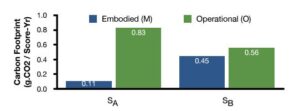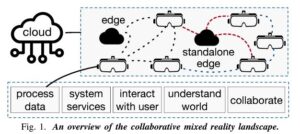Data & computing
Ongoing Projects
Impact Fellow/Core
- The Climate & Sustainability Implications of Generative AI (Bashir, Olivetti)
- Use of generative artificial intelligence (Gen-AI) is expanding rapidly, and as with many large-scale technology-induced shifts, its benefits and high demand are taking center stage. While the perceived advantages are vast, neglecting to consider the negative effects alongside these potential benefits can lead to uncontrolled growth with lasting consequences on the environment. A new open access paper by an interdisciplinary team of MIT researchers explores some of the key drivers of this growth and why sustainability considerations for Gen-AI are lacking – ultimately calling for more responsible development of Gen-AI using a comparative benefit-cost evaluation framework. Published as a preprint by MIT Press, “The Climate and Sustainability Implications of Generative AI” highlights how the excitement around Gen-AI is leading to an incomplete consideration of value that ignores the potential costs. The resulting social and environmental impacts require detailed analysis, coordination, innovation, and adoption across diverse stakeholders to steer the direction toward responsible growth.
- MCSC DataHub (Olivetti)
- The DataHub was created to provide centralized access to data and interactive tools related to MIT efforts in the climate and sustainability space. Researchers from all fields are encouraged to contribute to a collaborative data environment where data can be easily discovered and enhanced by modern data fusion and hybrid computing methods and techniques. A mixture of data pools and data warehouse architecture can enable flexibility at scale for heterogeneous datasets.
Contact Us
Get in touch with the MCSC
If you would like more information, please e-mail mcsc@mit.edu.
Who’s studying this
MCSC Impact Fellow





